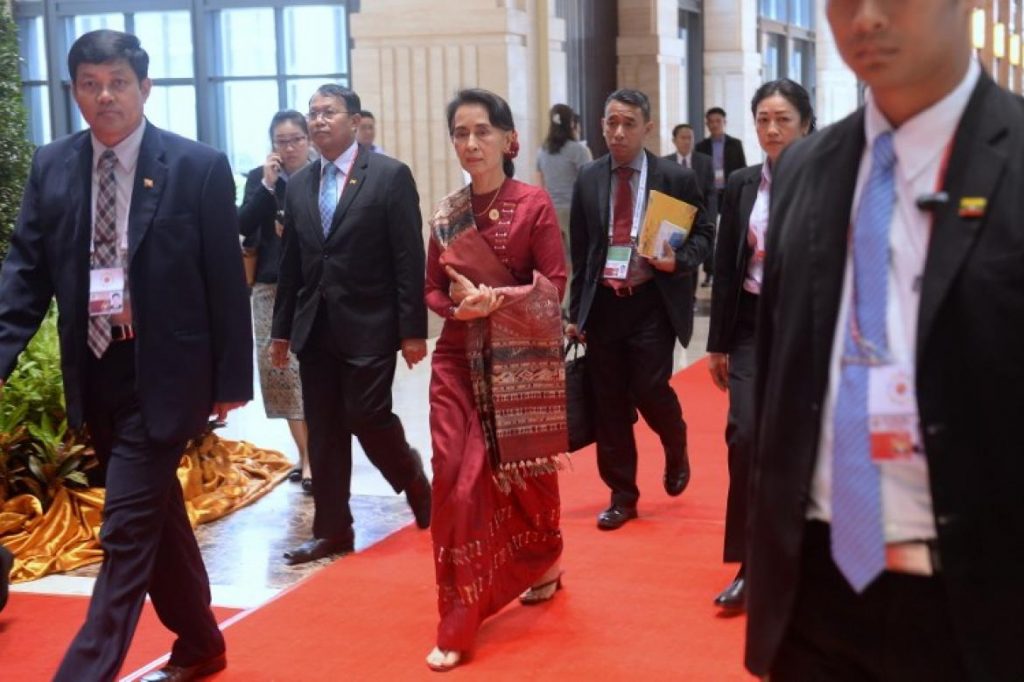Daw Aung San Suu Kyi has assumed a “potentially overwhelming workload” in the government and her success will partly depend on her ability to delegate, Brussels-based think-tank, the International Crisis Group, said last week.
“As state counsellor, foreign minister and chair of the high-level committees in charge of the peace process and Rakhine State, leadership on all these fronts falls on Suu Kyi’s shoulders, a huge responsibility and potentially overwhelming workload,” the ICG said.
“Success depends on twin policy and personal challenges: developing not only considered and consultative approaches, but also her ability to delegate,” it said in a report released on July 29.
The report, Myanmar’s new government: Finding its feet, says an “important observation” is that Myanmar has passed through a year of considerable uncertainty and change with no major political turmoil.
The National League for Democracy’s landslide victory in a broadly credible and largely peaceful election had been followed by the first orderly handover of power to an elected government since independence in 1948, it said.
Support more independent journalism like this. Sign up to be a Frontier member.
“The new administration has now entered an awkward cohabitation with the military, as dictated by the 2008 constitution, without significantly compromising key principles or prompting any fundamental rifts with the soldiers,” the report said. “Navigating these difficult waters has been a key early success for all concerned,” it said.
The report said that although there appeared to be good cooperation with the Tatmadaw, relations had not always been sensitively handled, such as over the appointment of Suu Kyi as state counsellor.
It was “essential” for the success and stability of the transition that cooperative relations were maintained with the military, the ICG said.
The report referred to “missteps” over the peace process and Rakhine state, “both of which relate to a failure to appreciate the complex details and a lack of consultations in advance of announcing important decisions or initiatives”.
It was not unexpected that a new, inexperienced government inheriting a legacy of decades of divisive authoritarian rule would make missteps, the report said.
“The key question is whether the missteps can be attributed to the settling-in period, or reflect a deeper culture of impulsive, non-consultative decision-making. If the latter, this would be a significant concern, but it is too early to judge.”







